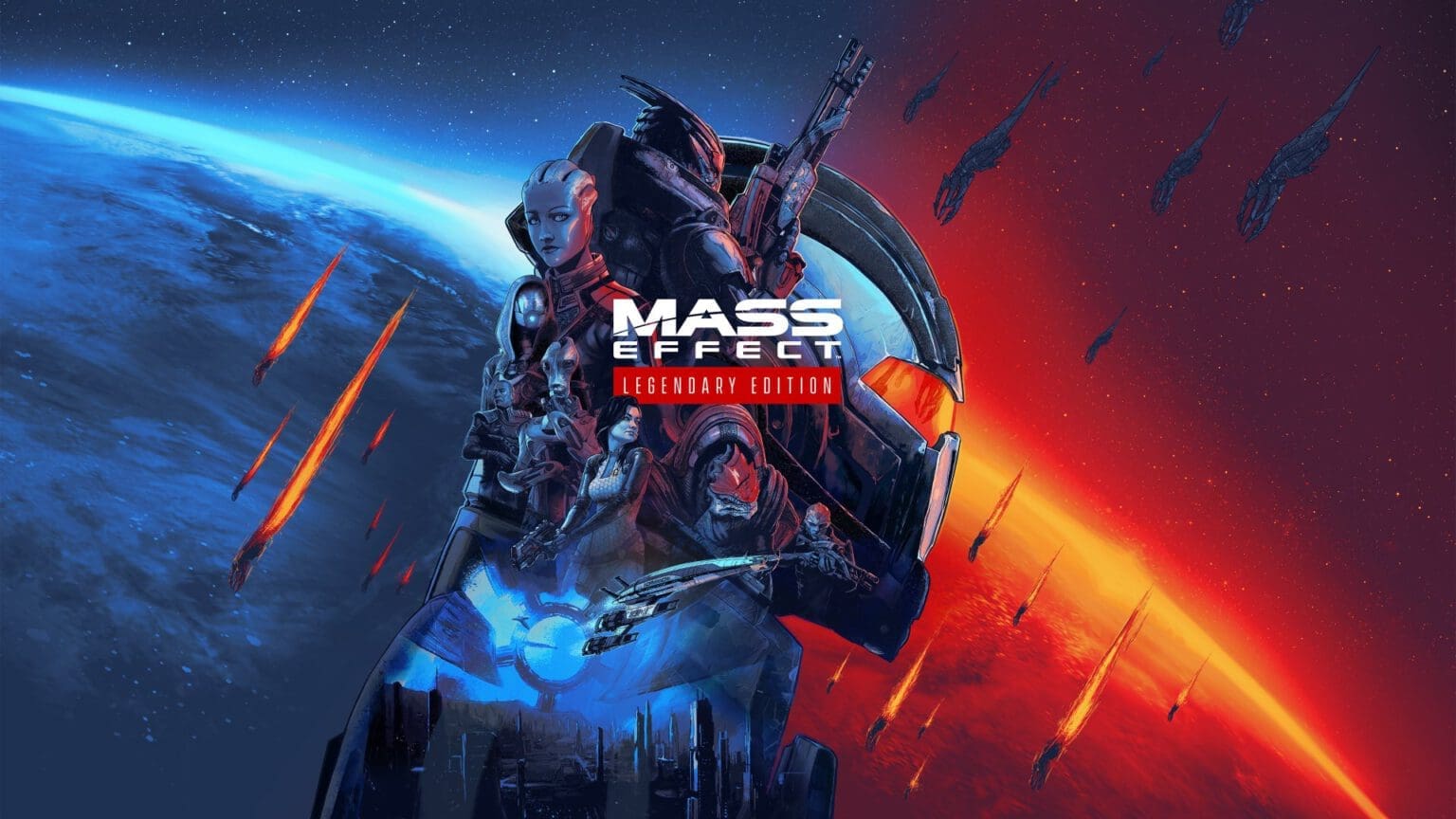These days, developer and EA subsidiary BioWare is mostly known for disappointment, if anything, thanks to the sometimes hilarious but ultimately depressing release of Mass Effect Andromeda, and the outright disastrous Anthem, an ill-conceived attempt to break into the live service looter shooter genre that’s now long been dominated by games such as Destiny and Warframe.
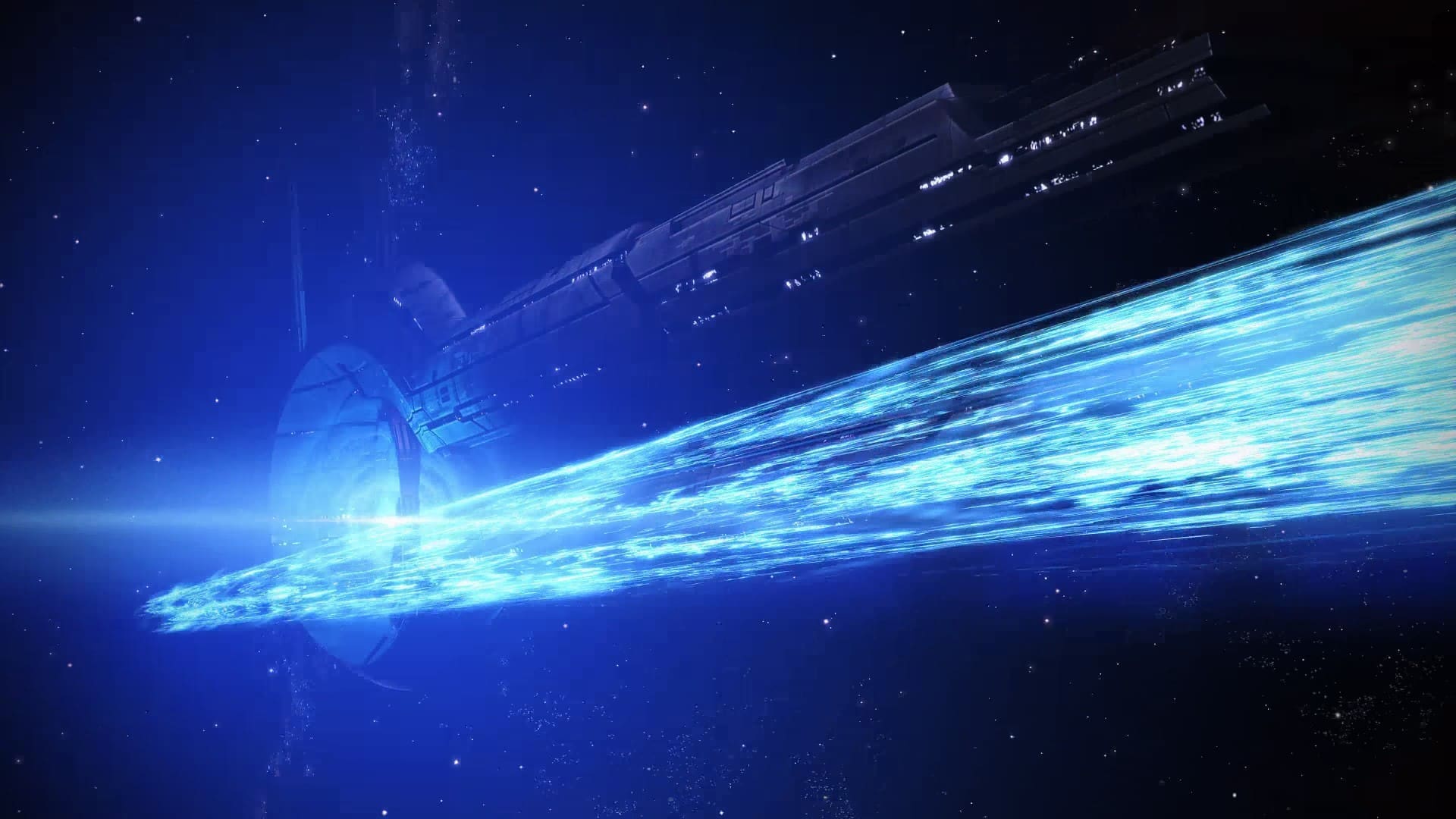

But it wasn’t all that long ago that BioWare was rightfully known and revered as one of the best WRPG developers in the world, churning out complex, ambitious and memorable games such as The Knights of the Old Republic, Neverwinter Nights, Jade Empire, and, of course, the original Mass Effect trilogy. Telling the tale of Commander Shepard and their galaxy-spanning adventure to stop the Reapers, a species of synthetic life that destroys all advanced civilization every 50,000 years, the Mass Effect trilogy is still the most ambitious, daring, and superbly crafted series of RPGs ever released. Now, thanks to EA’s new Mass Effect: Legendary Edition, a whole new generation can experience these games for the first time, and older fans like me finally get a chance to revisit these classics, wrapped up in a brand new package that boasts more than just updated visuals.
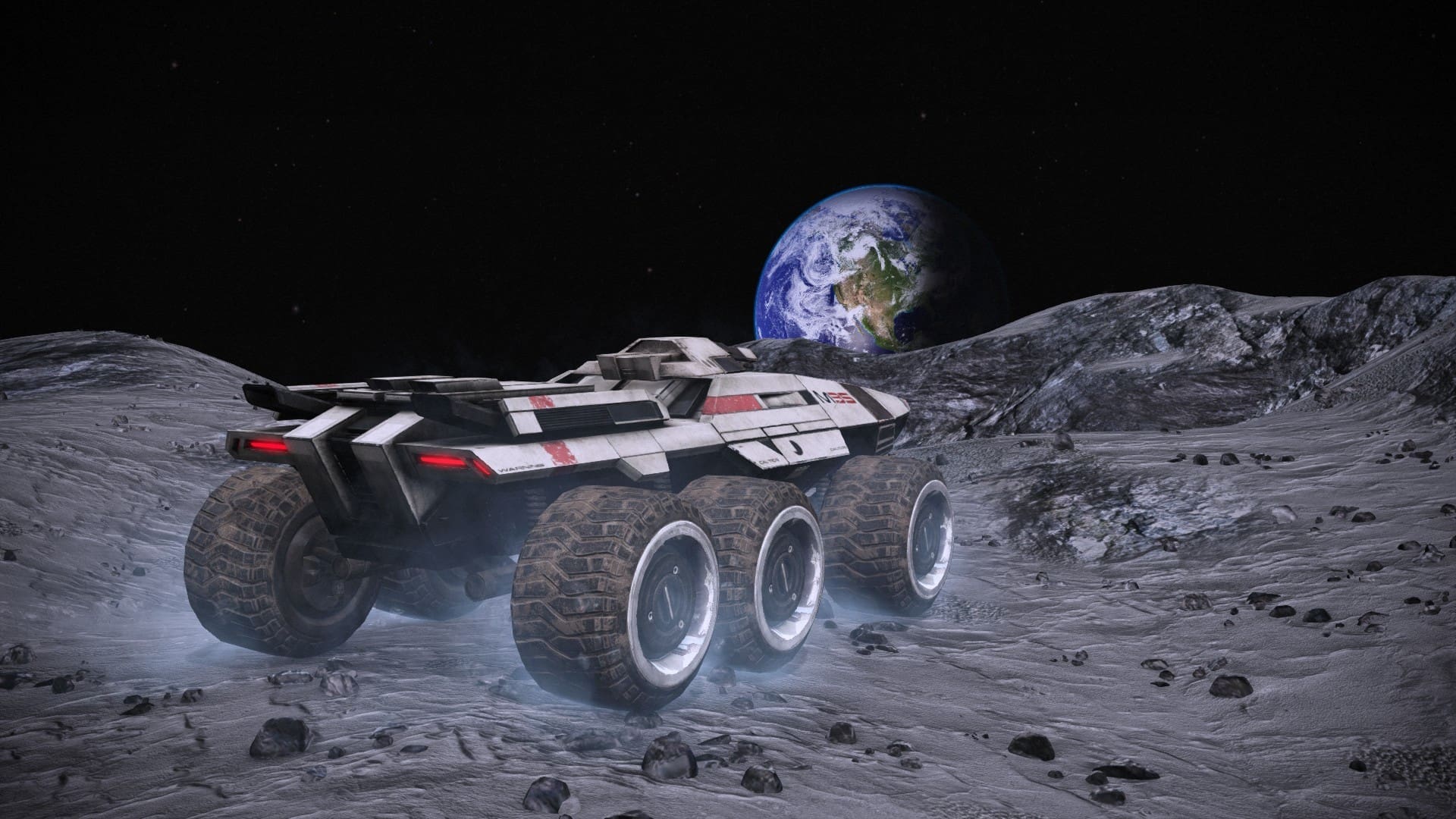

A MASSIVE, SPRAWLING UNIVERSE
The Mass Effect series takes place throughout every corner of the Milky Way, from our local solar system to the furthest reaches of the Omega Nebula, some 6,000 light years away, and beyond. There are 74 total star systems that can be visited throughout the three games, each with several planets, moons, and asteroids that can be explored. Some can only be explored from your ship, but many allow you to bring a landing party to the surface and explore on foot, or with your Mako, a six-wheeled behemoth with a massive cannon on its roof.
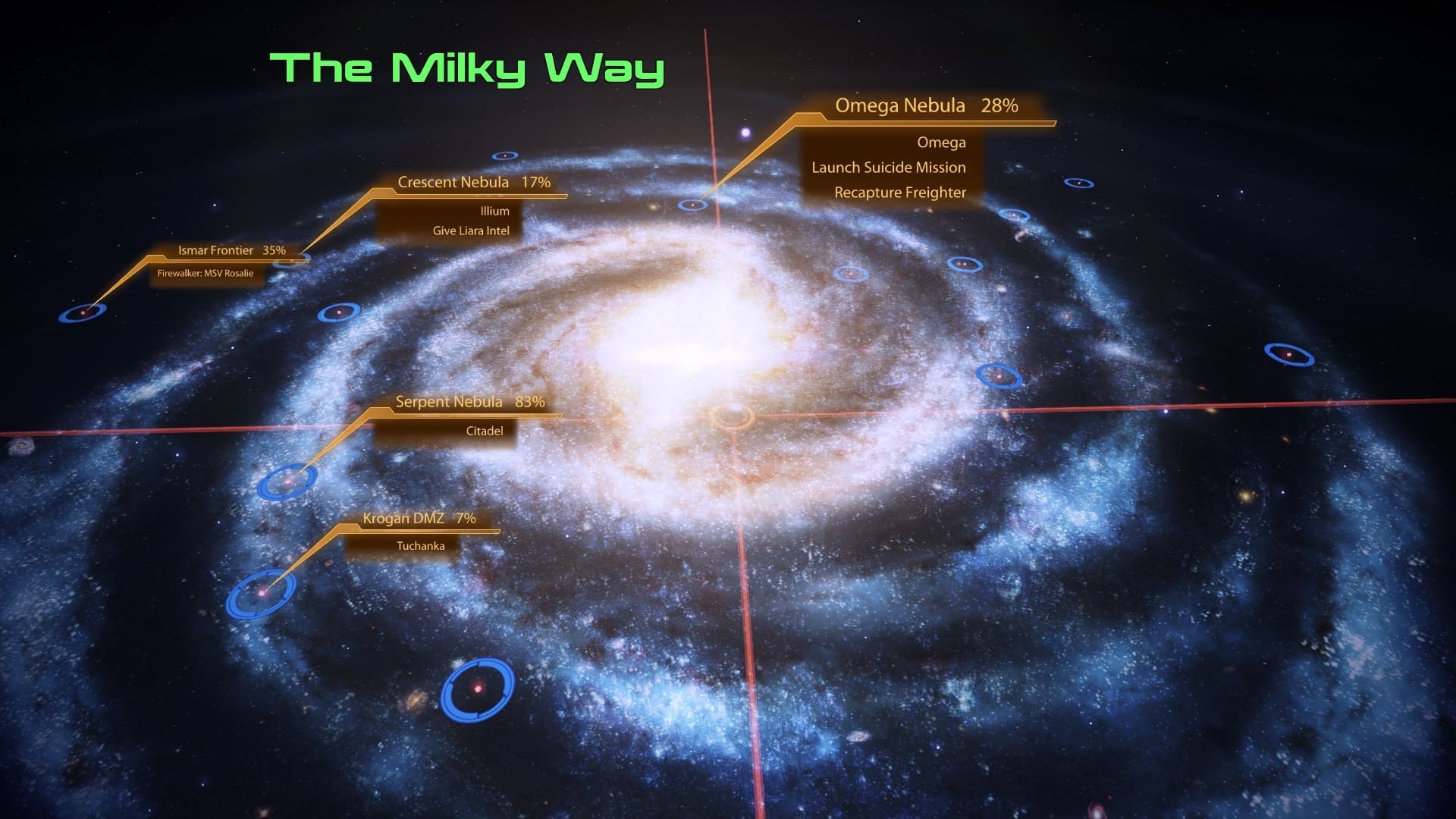

The scope of the Mass Effect universe isn’t easy to comprehend at first, but by the time I first rolled credits on the final game, I was a bit awed by just how far I’d come, how much exploring I’d done, to get to that point. It doesn’t hurt that the Legendary Edition comes with every single piece of DLC for every game (with one minor exception), that adds dozens of new locations and several hours of exploration to each game. A simple run through just the main quest of a game could be completed in as little as 10 hours, but each installment is packed with expansive side content, such that I spent approximately 30 hours with each game and still didn’t see every last nook and cranny of the Milky Way.
It’s not an empty galaxy, either. Mass Effect features roughly a dozen different alien species of advanced civilizations, and several more primitive ones. The more advanced species, such as Turians, Salarians, and Asari are, along with humanity, part of a centralized galaxy-wide government, headquartered at The Citadel, an ancient space station so massive that over 4 million people call it home.
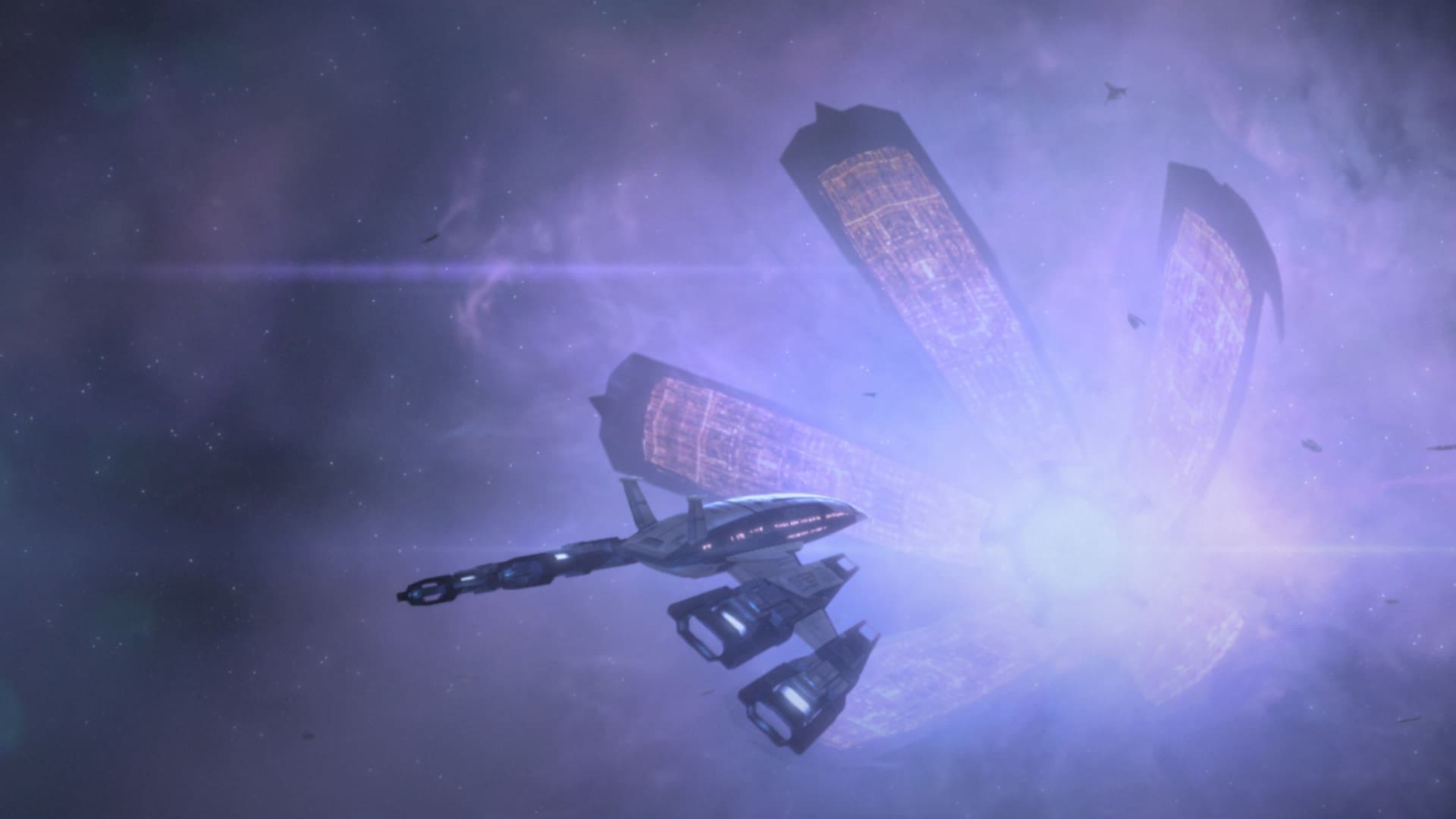

As you can imagine, the culture and politics of alien species don’t always lend themselves to human understanding of morality or justice, and BioWare doesn’t shrink from this but embraces it, and uses it as the underlying friction that leads to a lot of the galaxy’s problems, often leaving Shepard and their crew to pick up the inevitable mess.
Basically, there’s a lot to do in these games, and it spans a galaxy that’s over 100,000 light years wide. Thank goodness you have reliable transportation.
THE SSV NORMANDY
Everyone has their opinion on which Mass Effect party member is the best (it’s Tali’Zorah nar Rayya, by the way), but in reality the true star of each installment of Mass Effect is the ship in which you travel the stars, the SSV Normandy.
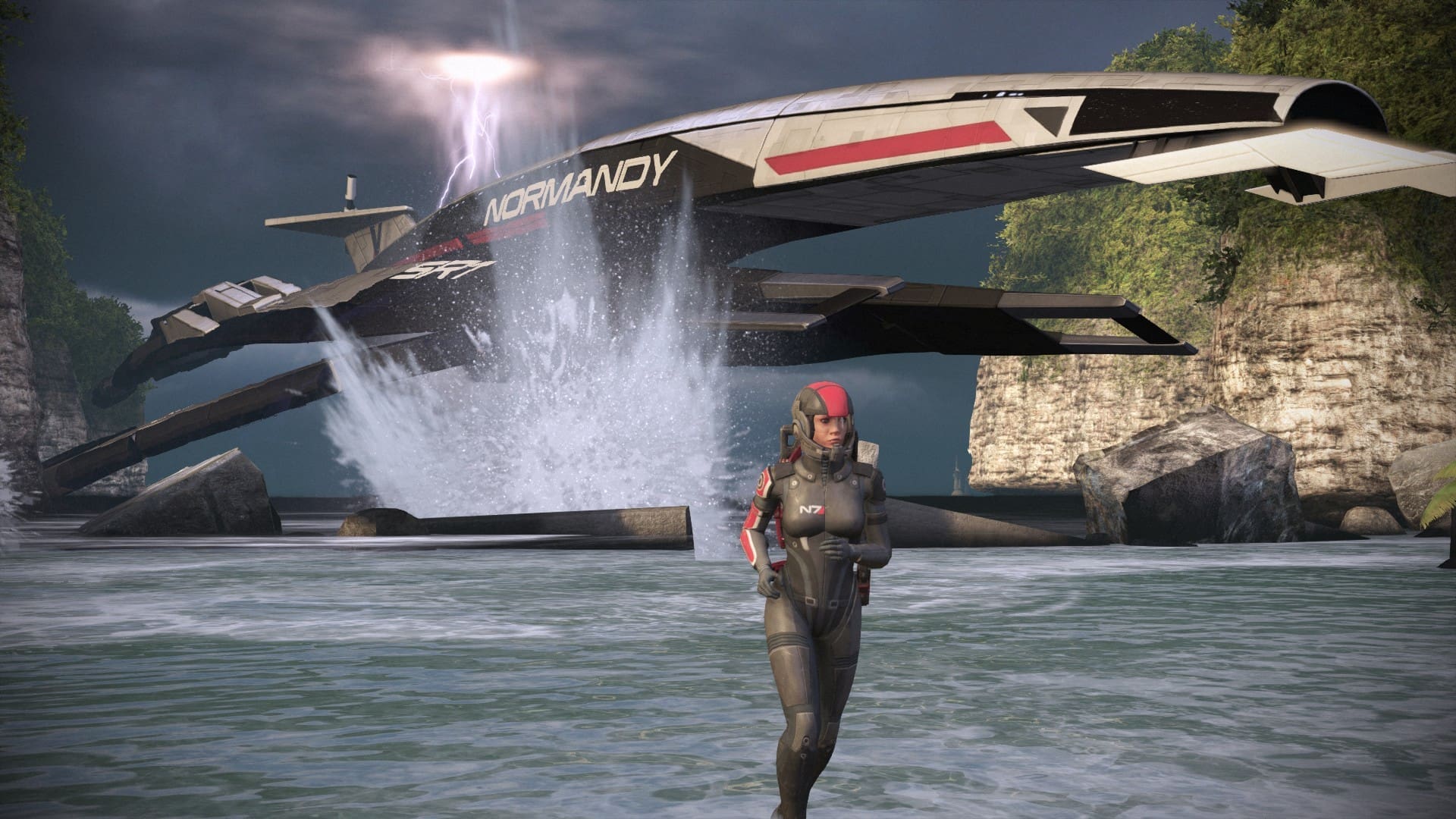

You’ll spend more time on the Normandy than you will any other location in the games, as you plan your missions in the briefing room, research upgrades in the Tech Lab, swap out gear in the Armory, or just bond with your crew in the various pockets of the ship they come to call home. You can also hang out in your luxury private cabin, complete with a music library, a private communications terminal, and even an aquarium.
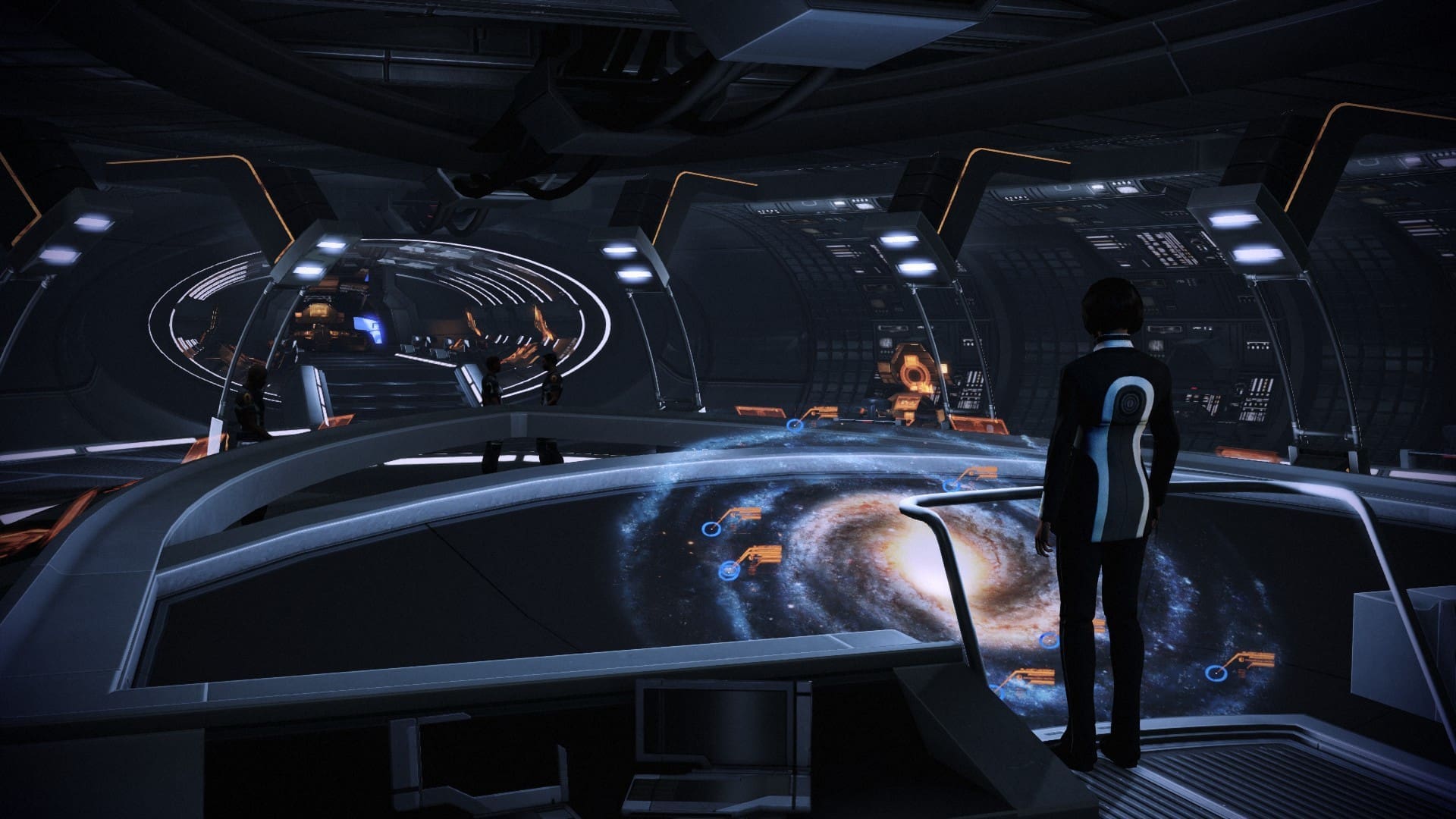

The Normandy gets significant upgrades with each subsequent game, most of which are decidedly welcome (even if a few are just downright baffling), but despite the cosmetic and logistical evolutions it always retains the same authenticity that lets you feel like you’re in command of something tangible and real, in a way other games with such features never really nail, to the point that returning to the Normandy after tough missions brings a palpable sense of relief.
CHOOSE YOUR DESTINY
At the beginning of Mass Effect, you’re given the chance to create your own, personalized version of Commander Shepard, not only choosing between gender and appearance, but various classes that affect how you’ll actually play the game. There are six different classes to choose from, each providing a different combination of strengths in the three primary disciplines you’ll use in combat: weaponry, tech, and biotics. Weaponry of course determines which weapons you can use, and how well. Tech dictates your proficiency with technology, such as hacking enemies or attacking them with special tech gear. Biotics are basically a stand-in for Star Wars-esque force powers. Biotics are incredibly diverse, allowing you to pull people towards you, bowl them over with concussive blasts, mentally lift them up and slam them into walls, or suck them all into a singularity.
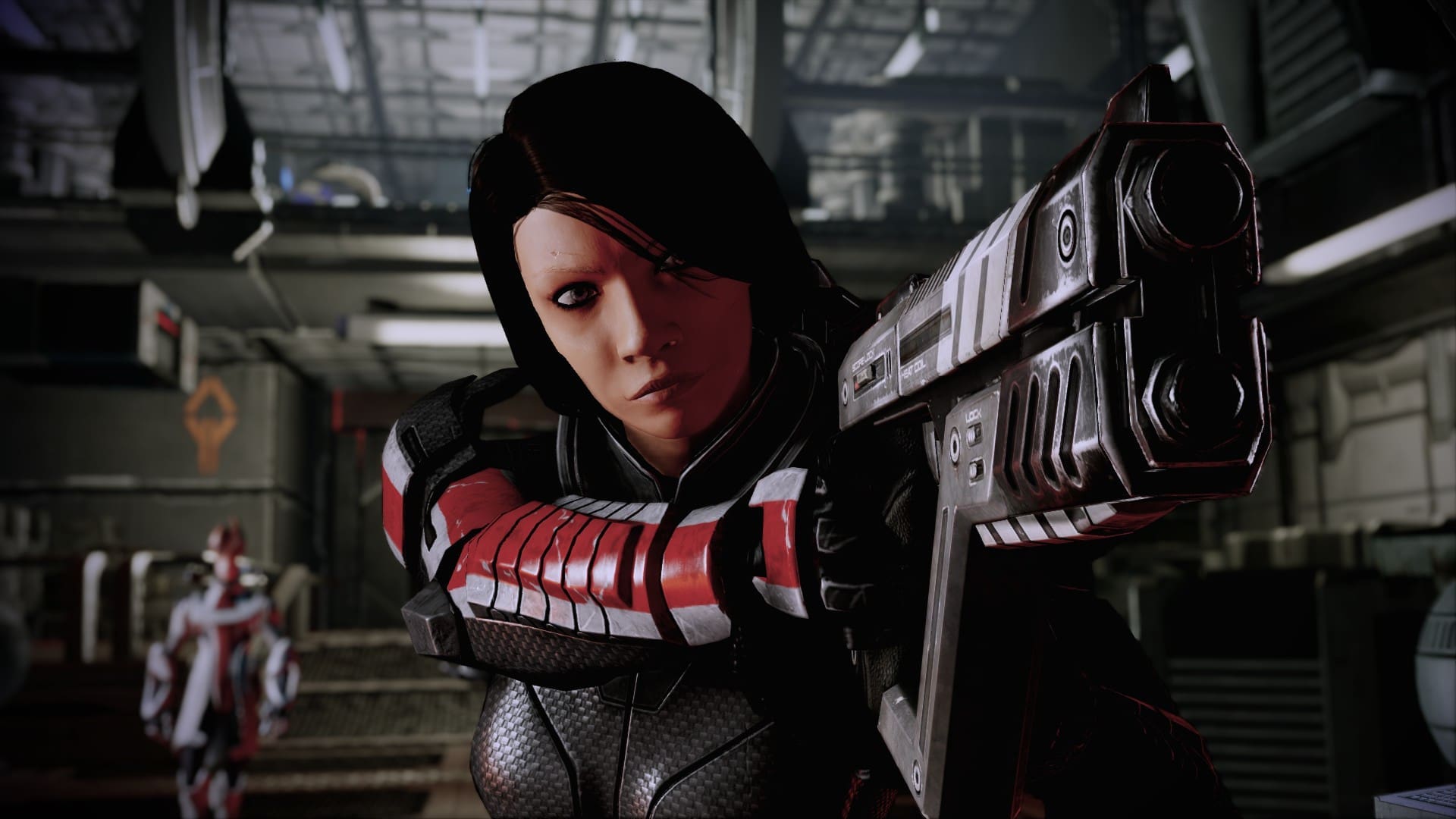

Which class you pick determines how much access you’ll get to these disciplines. Soldier is a pure combat class with limited tech/biotic options, Adept is purely biotic with limited combat/tech options, and Engineer is a tech specialist with limited biotic/combat options. The three remaining classes, Vanguard, Sentinel and Infiltrator, are more balanced combinations of disciplines.
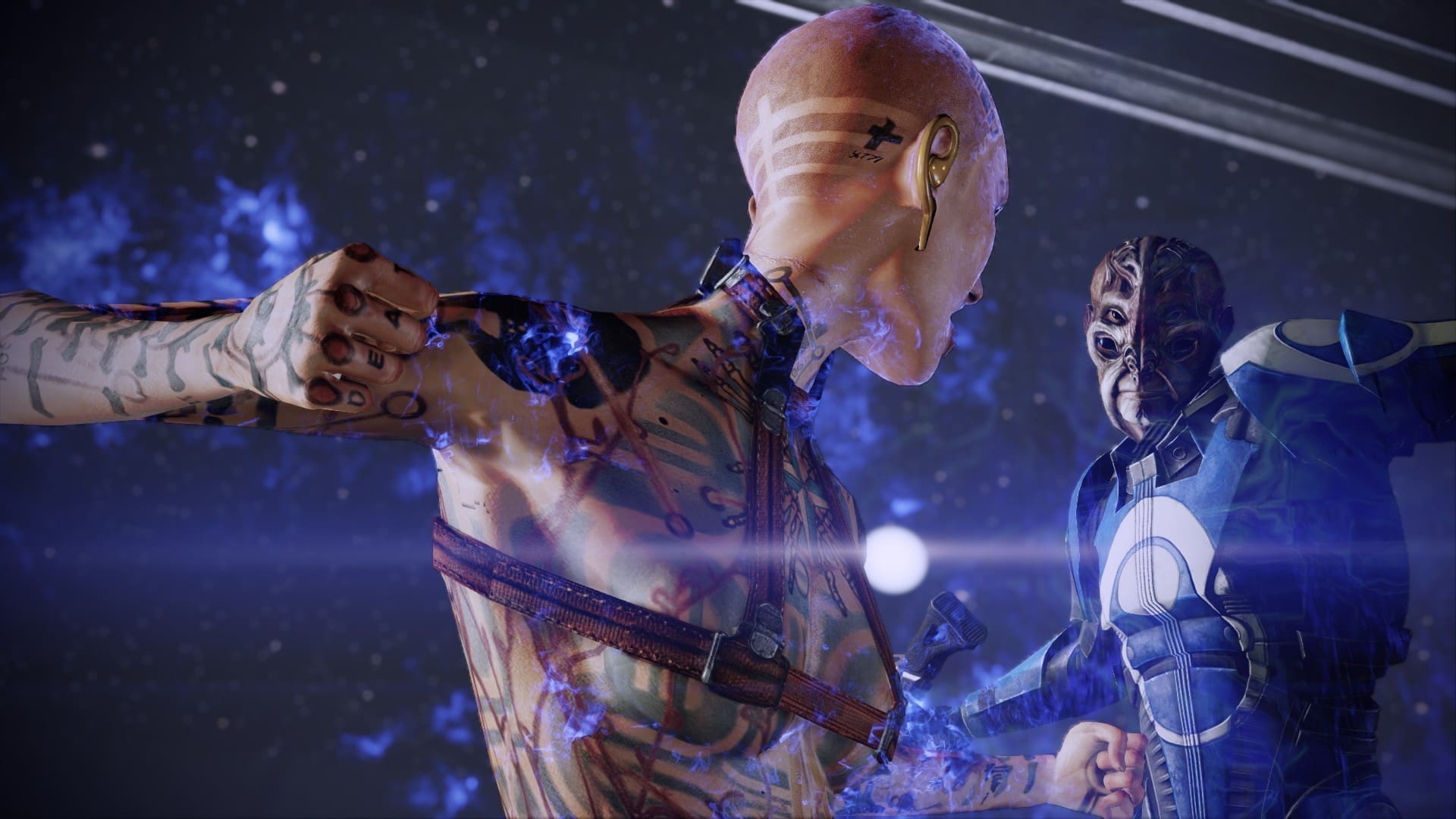

Which class you choose will have a drastic impact on how much you enjoy the game. If you really like having a wide variety of weaponry to choose from, like me, Soldier is really the only way to go. If you don’t care about weapons but love the idea of using fancy mind powers to wreck your enemies, you’re best off going with Adept, but you’ll be locked into using only low-power weapons like pistols and SMGs.
Thankfully, your teammates throughout the game will sport various complementary tech and biotic skills, which you can either control manually by pausing the action with a button press and making choices for them, or allow them to use independently of your input. It’s a great setup that allows you and your team to use all the various powers at your disposal in concert, and does so in such a way that you’ll have command over them all regardless of which career path you take.
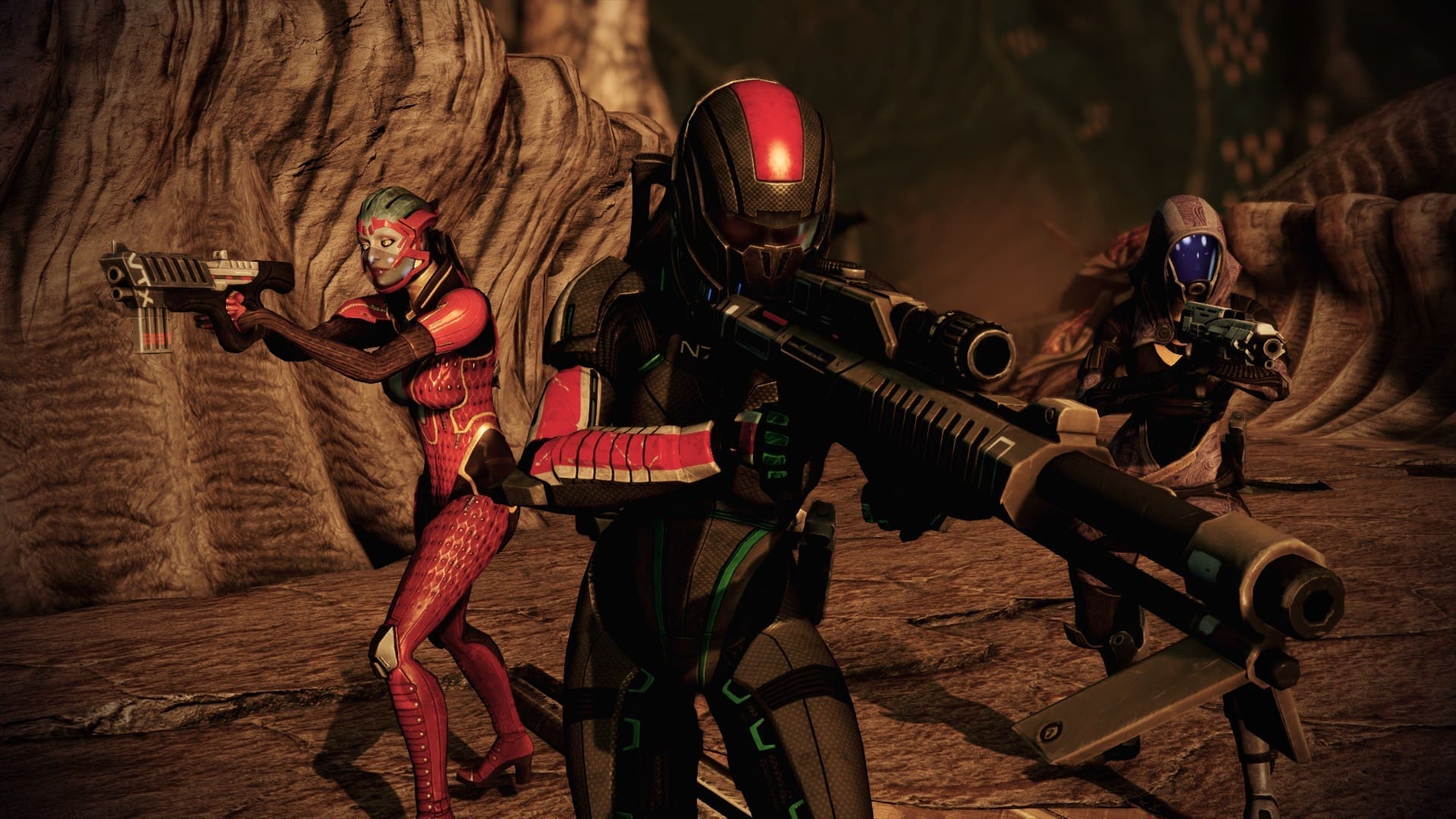

PARAGON OR RENEGADE?
Like most role-playing games, the heart of Mass Effect is the narrative. Unlike most role-playing games, you’re more than just a passive audience as the story is doled out in between battles. The conversational choices you make in these games matter, in ways more profound than any other RPG I’ve ever played. Certain choices you make in the first game can mean the difference between someone living and dying in the third game, depending on other choices you make along the way. Whether you get romantic with certain characters early on determines who you can and cannot romance later. It’s incredibly intricate, and interwoven, especially when you consider that each game changes up which characters can join you on your quests.
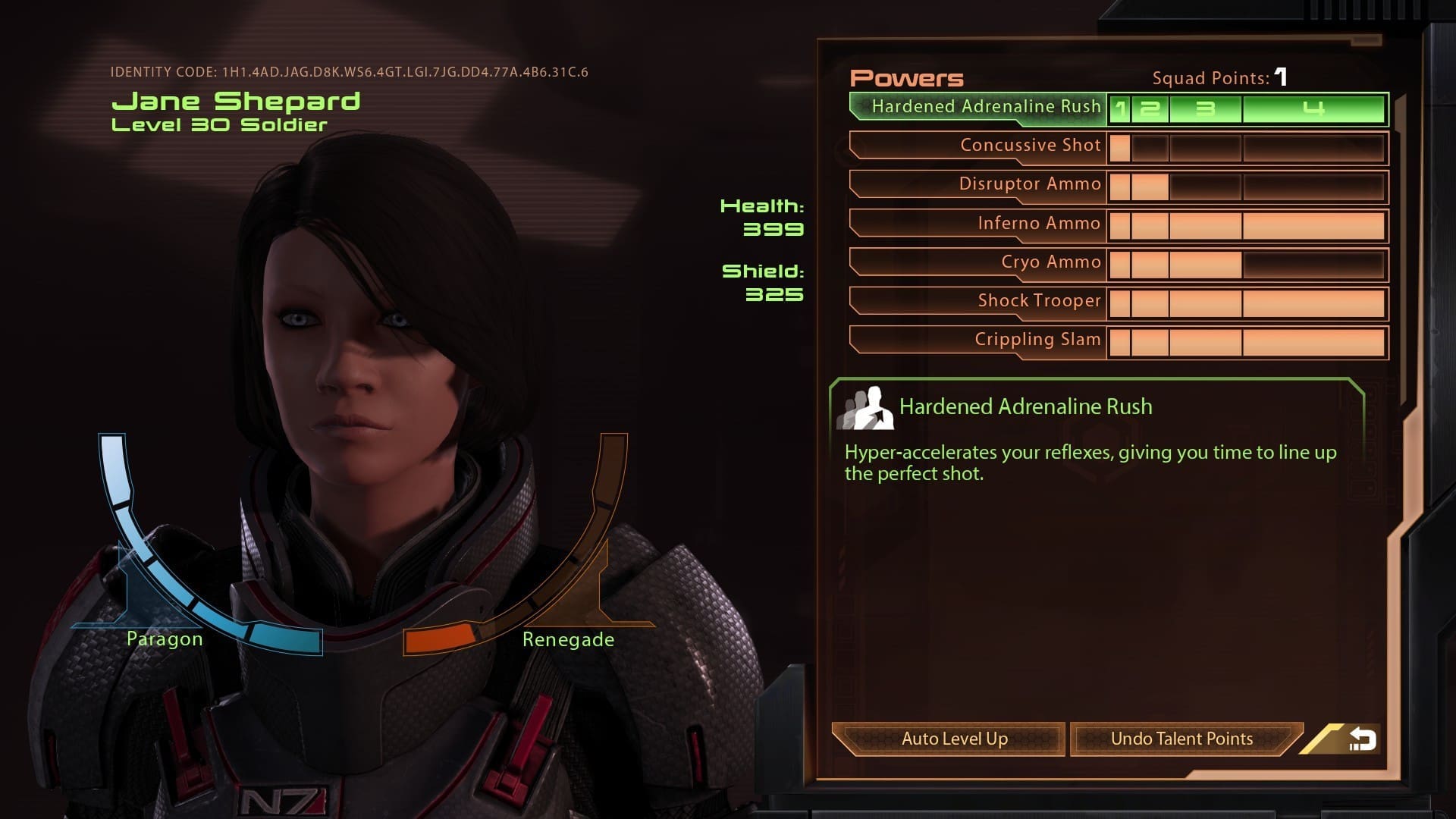

More importantly, what conversational options you even have often boil down to how you’ve responded to previous situations. BioWare keeps track of all this with what was, at the time, a fairly revolutionary solution called the Paragon System, built around their patented dialogue wheel. For every positive, supportive, altruistic choice you make, you can earn Paragon points. For every ruthless, reckless, denigrating choice you make, you earn Renegade points. It’s not a scale that tips one way or another based on each choice, either, as you can increase your paragon or renegade builds independently, but since you’re often forced to choice between one of those two options, you’ll likely find yourself overwhelmingly tilting in one direction by the end of the first game. As you dive deeper into one morality path or the other, you can unlock special Paragon/Renegade specific options that often make the difference between someone backing down from a fight or trying to kill you, remaining loyal to you or not, or even deciding whether they live or die, so it’s important to pick a path early and stick to it. In the first game this can be made much easier, as you can simply directly invest experience points you gain into conversational options, the same as you might increase your health or weapon damage. Starting with Mass Effect 2, however, you’re required to earn your reputation solely through words and deeds.
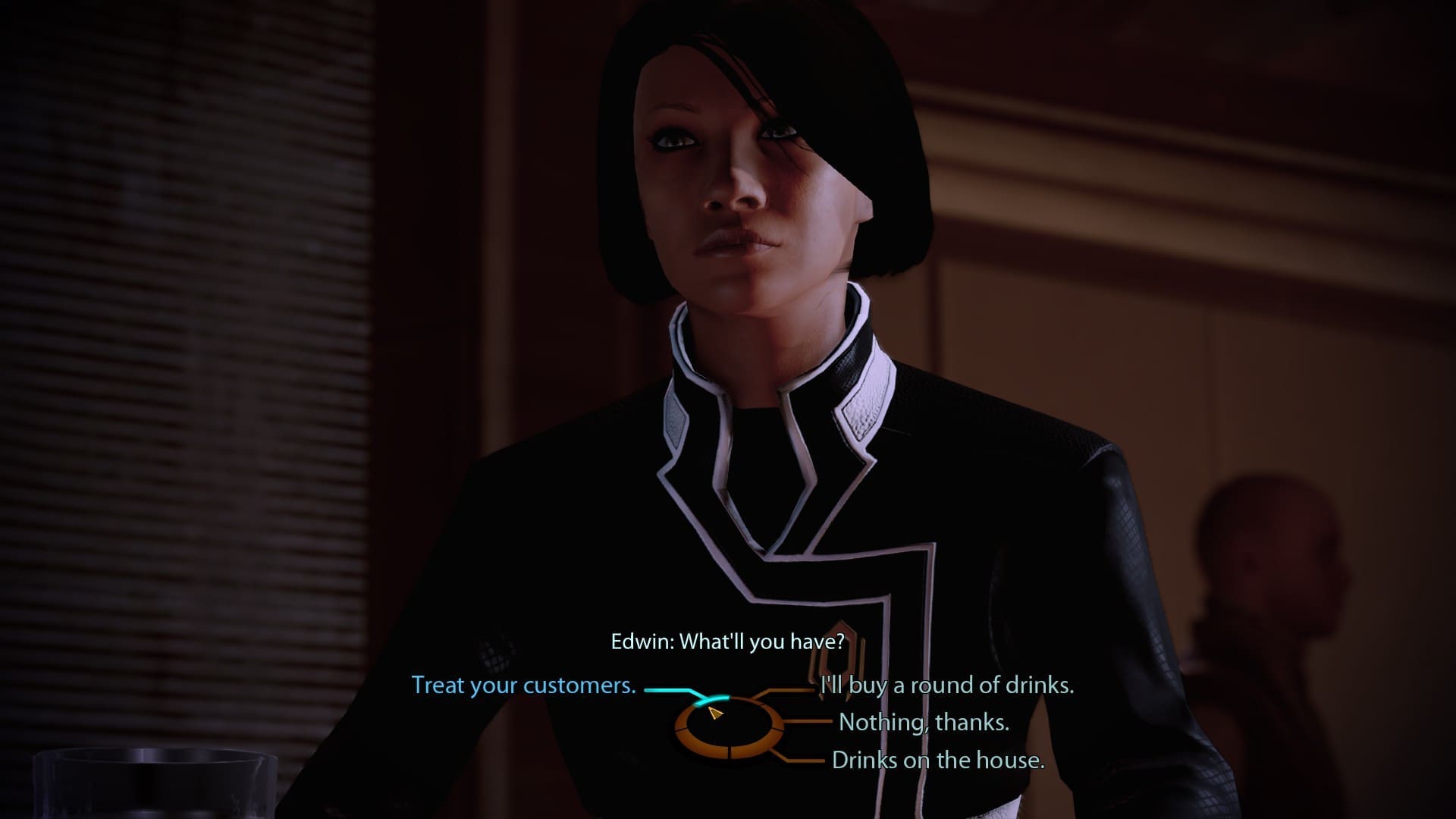

Also beginning in the second game, BioWare introduced conversational interrupts; moments where you can tap one button or another and disrupt an ongoing conversation or event by taking an overtly noble or monstrous action, such as disarming a friend before they make a decision they’ll later regret, or blowing up a gas tank and murdering the evil alien gang leader while he’s still ranting about how much he wants to murder you.
Most make for quite satisfying disruptions to otherwise normal scenes, but more importantly they also give you the chance to ‘go off script’, as it were, against the nature of the character you’re trying to build, and simply act with your gut once in awhile. I’ve almost always tried to max out my character’s Paragon potential, simply because being a jerk to everyone in the galaxy isn’t necessarily how I want to spend my game time (though the one time I went renegade, I have to say it was more satisfying than I anticipated), but every once in awhile it does feel good to use a renegade interrupt to knock a snarky reporter on their butt, or smack around a wanton murderer who thinks he’s above the law.
THREE GAMES, ONE EPIC
One of the biggest draws to the Mass Effect games when they initially came out was the ability to import your final save data from one game into the next, so that you could take the same version of Shepard you’d created, and subsequently built out, in Mass Effect 1 all the way to the end of the story in 3. The imported character data didn’t just remember what you looked like, and what your Paragon/Renegade score is, but also key events from previous games such as whether or not a certain key individual survived certain perilous moments in previous games and the status of important NPCs that affect the overall story. This imported data creates a starting point in subsequent games that is unique to the choices you’ve made, meaning your time with the trilogy could end up looking very different than your friends’, based on the choices you’ve made.
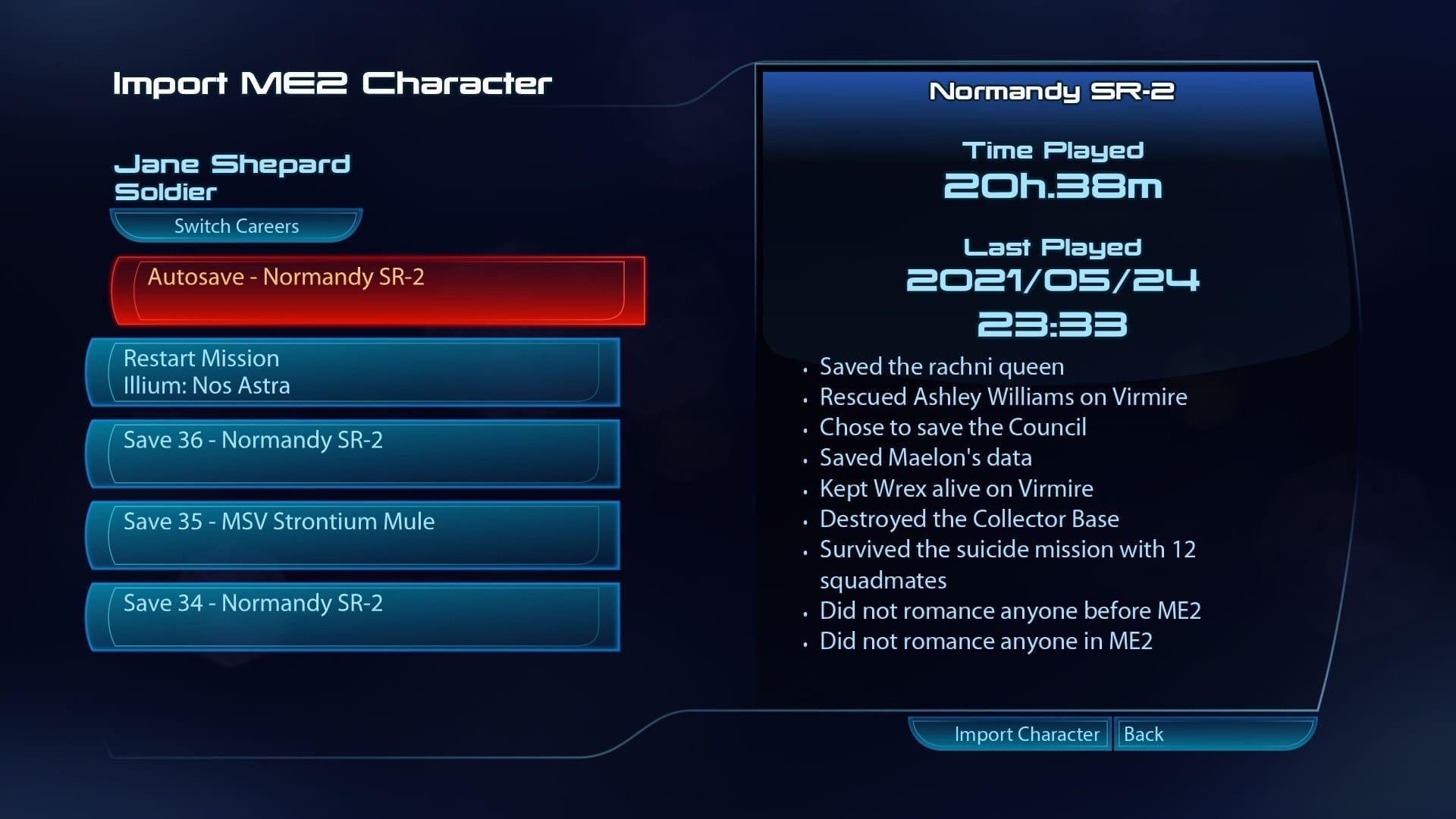

Of course you’re not required to play this way, and each game has a default state that makes some of those decisions for you when creating a character from scratch, but importing your character from one game to the next creates a sense of permanence to the universe you’re exploring, and an authenticity to your character that can’t simply be simulated.
None of this is to say that the games are perfectly consistent throughout. BioWare continued to experiment and refine the experience as they went, and subsequently each installment in this trilogy has its own unique look, feel, and gameplay experience. Each also focuses on a different aspect of the larger overall threat.
A TRADITIONALIST RPG BEGINNING
The first installment in the trilogy is by far the one most devoted to traditional RPG mechanics of the day, and is the one you’d most closely associate with something like Fallout. You have to gain XP to level up everything from your conversational skills to your proficiency with certain weapons, to increase accuracy or stability, reduce reticle jump, etc. As a result, the combat can feel a bit clunky in the beginning, especially before you’ve had the chance to pick a play style and invest in the corresponding upgrades.
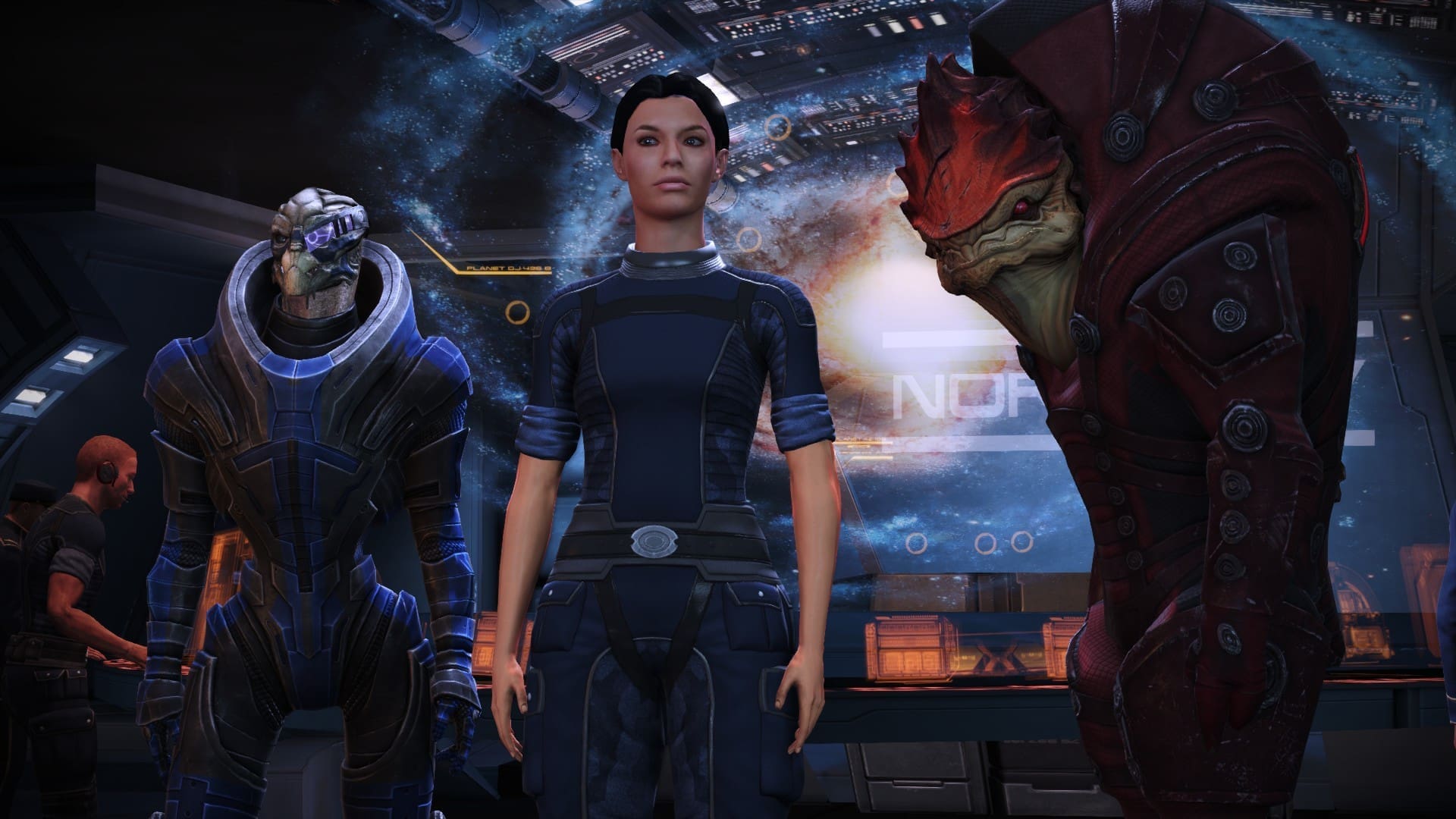

This has been mitigated somewhat in the Legendary Edition, with some slight tweaks to the gunplay to make it smoother and more in line with latter entries, but the heavy RPG influences are still there in the gameplay.
A PERFECTLY BALANCED SEQUEL
It’s not a particularly controversial statement to declare Mass Effect 2 the best entry in this trilogy, as it also happens to be one of the best standalone action RPGs ever made. With Mass Effect 2, BioWare created a near-perfect balance of fast-paced, action oriented gameplay and compelling, intense and interpersonal storytelling. The majority of the game is devoted to building a new team, mostly from scratch, and then earning their loyalty as you barrel headfirst into what looks like a suicidal mission.
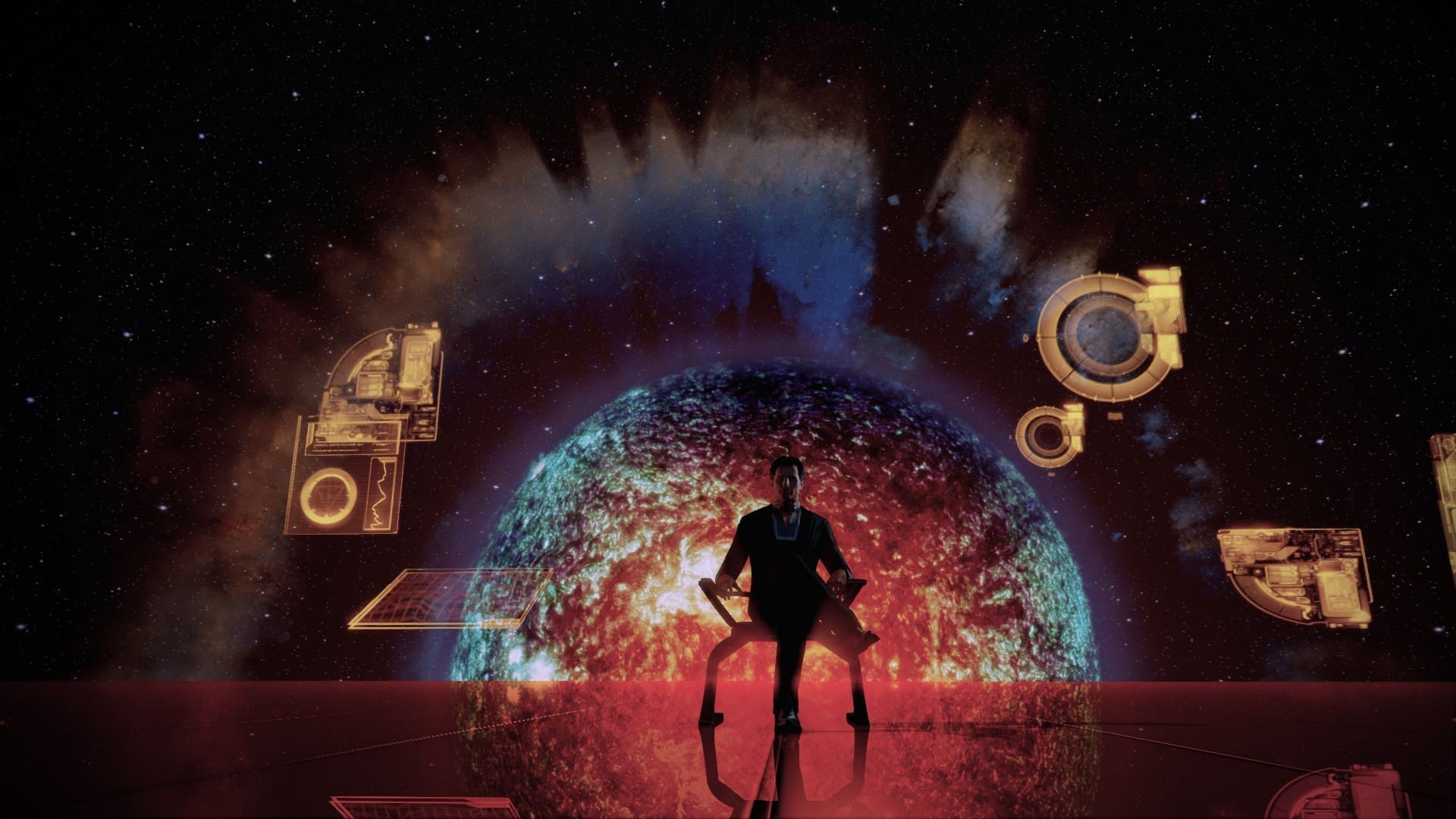

Your success in this game is based entirely on how devoted you are to your team, and how much loyalty you can inspire in return. It takes the focus off the greater threat for much of the game and invests that time and energy into creating a huge cast of memorable, often unforgettable, characters. This entry also sports the largest team composition in the trilogy, with up to 12 different team members available to recruit, compared to roughly half that in the other two games. Despite the extra company you’ll be hauling around in the Normandy, you have plenty of time to get to know each and every one of them well. The greater focus on high energy combat, and the slow burn of developing deep bonds with your entire crew, is a potent one-two punch that few other games can boast.
AN EXPLOSIVE FINALE
Story takes a backseat to action in Mass Effect 3, as BioWare dials up your weaponry and biotic powers to 11 to deliver some of the best third person action gameplay ever seen up to that point. Combat is fast, frenetic, and often unrelenting. Abilities recharge faster, guns hit harder and carry more ammo, and enemies are almost overwhelming in number. The end result is something that feels more like a summer blockbuster action movie than an RPG game.
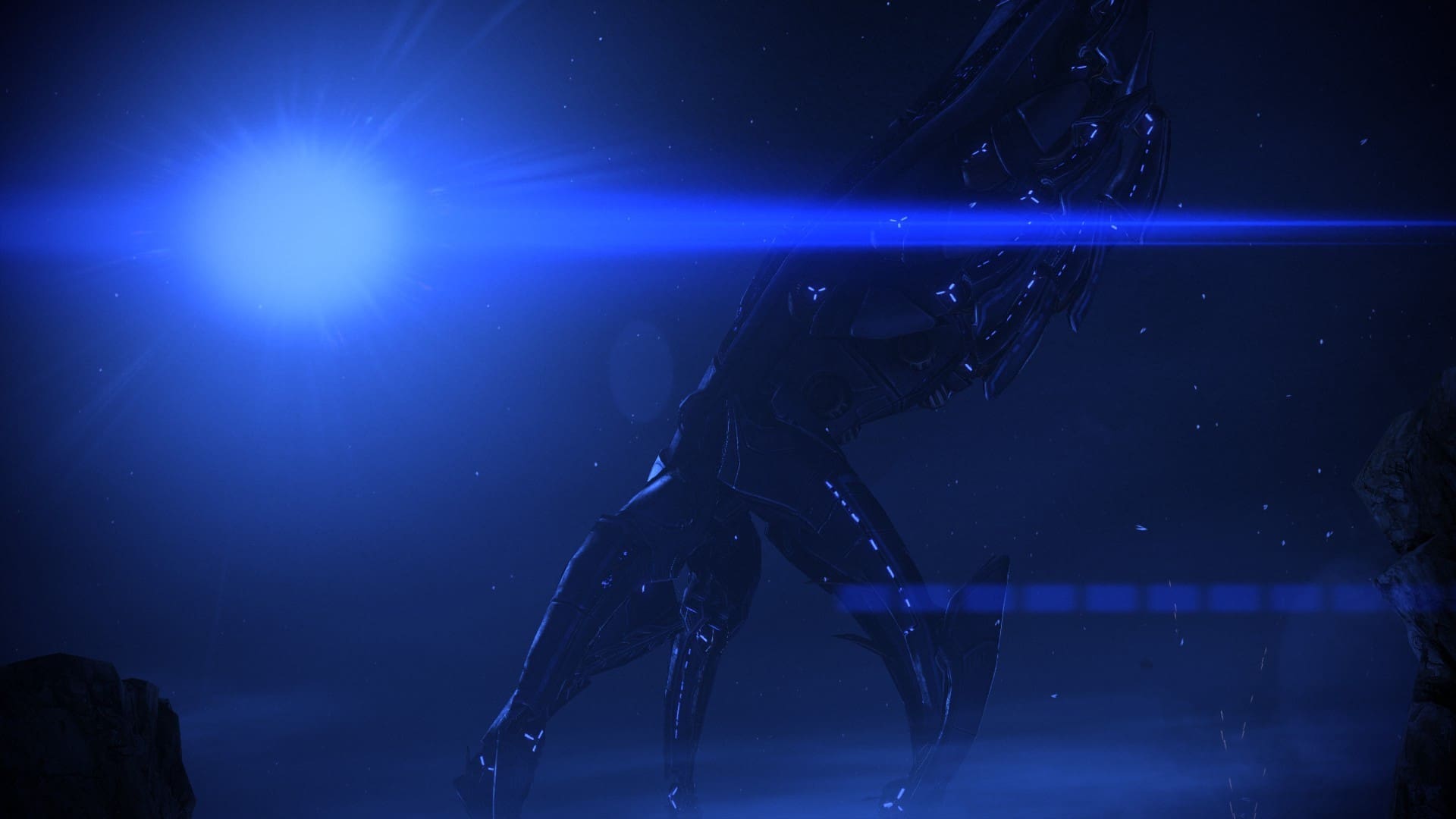

However, when the story does get a chance to shine, it pulls no punches and makes sure that all the choices you’ve made up to that point feel important. That’s because Mass Effect 3 is a game feels almost designed to break your heart, and punish any missteps you’ve made along the way. Mass Effect 3 is where all your prior decisions pay off, one way or another, and at this point entire civilizations depend on those decisions.
While it’s true that Mass Effect 3’s denouement ultimately left fans more than a little unhappy back in 2012, as they felt it didn’t properly reflect all the choices they’d made to that point, I think a lot of people missed that it’s the entire back half of the third game where those decisions come to bear on the story in a way that no single, universal ending ever could. The Legendary Edition also includes some extra endgame DLC content surrounding the ending that helps flesh it out a bit. While it’s still far from perfect, it’s definitely better than its reputation warrants.
A NEW CLASSIC
Mass Effect: Legendary Edition is among the odder entries in the new trend of remastering old games for new hardware. It’s not simply a remaster that only increases visual fidelity, and it’s not a remake that overhauls the games in a fundamental way. Existing somewhere in the middle, the games definitely look a lot better than their original versions but won’t ever fool anyone into believing they were made for modern hardware, and while some of the mechanics have been updated/overhauled, there are a lot of areas where BioWare could have made minor tweaks leading to significant improvements in the experience. It’s understandable that they may have wanted to keep the games as close to their original versions as possible, but in a lot of ways it just feels like missed opportunities.
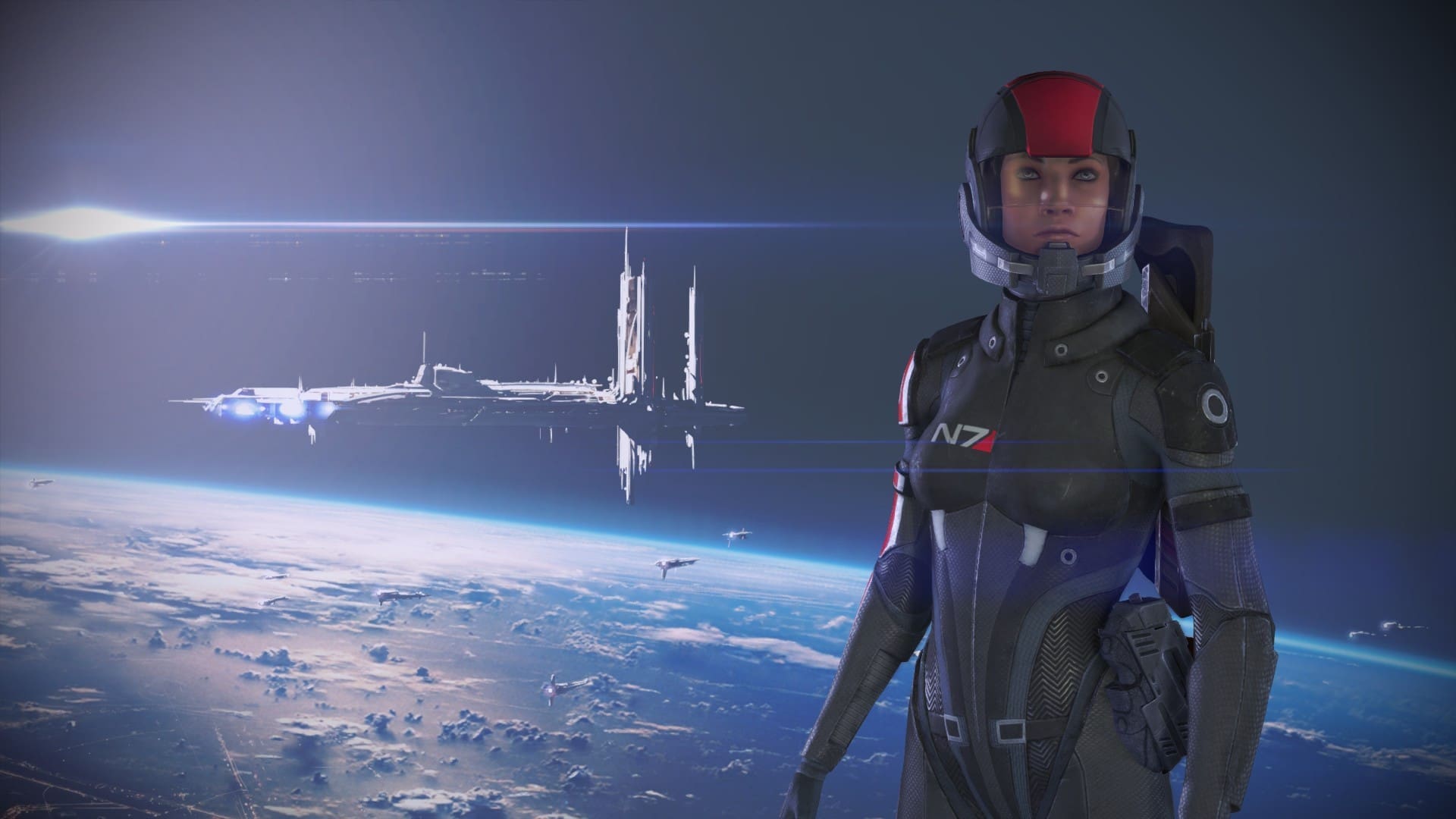

What counts, though, is that these games still excel at what they set out to do, which is tell a compelling and ambitious story in a unique and engaging way, while providing a gameplay experience full of innovation and bold design. Despite having sunk hundreds of hours into these games years ago, I was still awed by the sheer scale of the project, still moved by the more intimate moments between characters, and still heartbroken at the resolution of some plot arcs. Even after all these years, Mass Effect still has the ability to provoke emotions in me that only a handful of other games ever have. To me, that’s more important than a fresh coat of paint or some extra DLC, and why Mass Effect will always, in my book, be the greatest trilogy of RPG games ever made.

